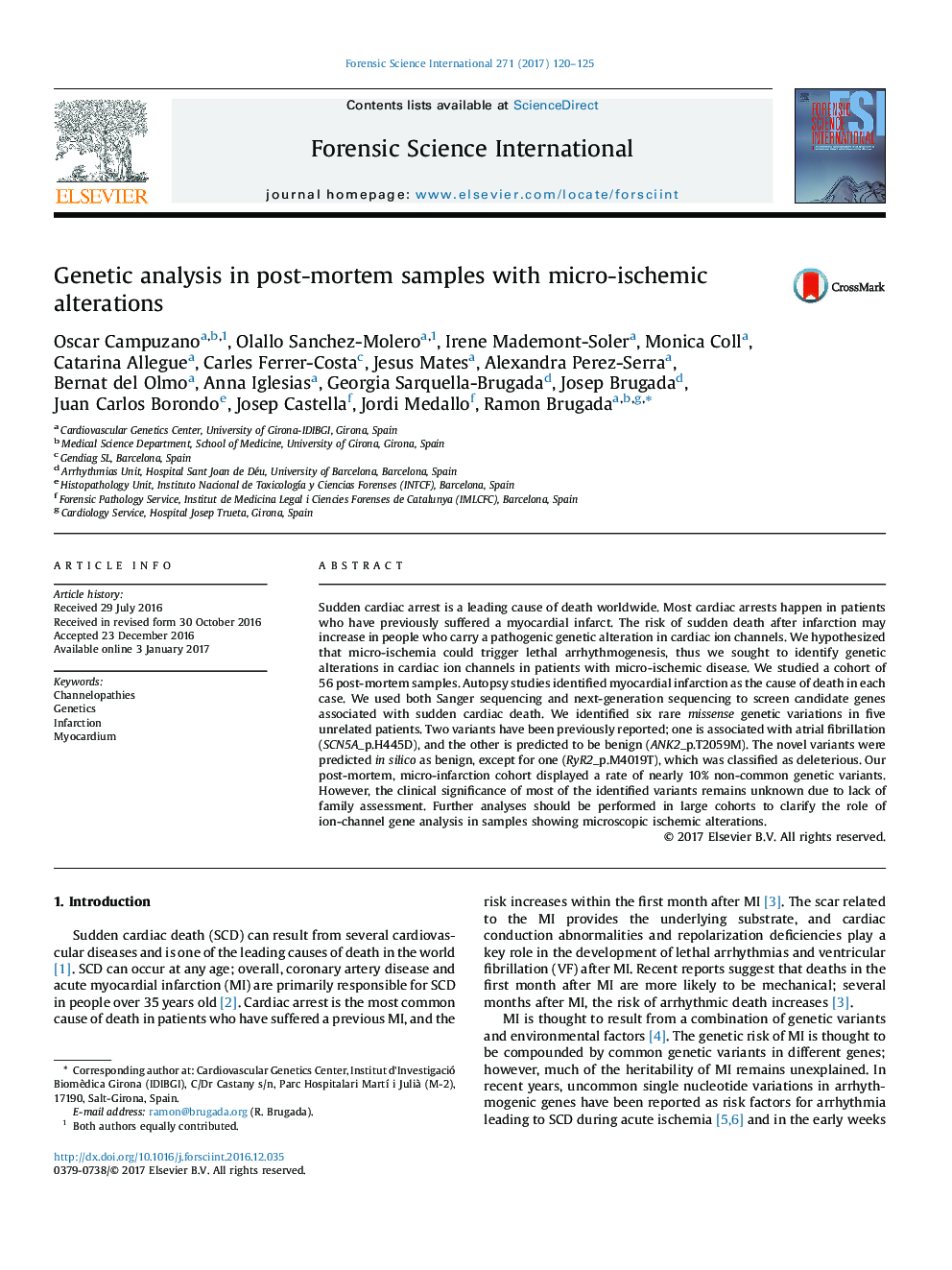| کد مقاله | کد نشریه | سال انتشار | مقاله انگلیسی | نسخه تمام متن |
|---|---|---|---|---|
| 6462061 | 1421979 | 2017 | 6 صفحه PDF | دانلود رایگان |
- A part of samples without conclusive cause of death show micro-ischemic alterations.
- Micro-ischemic post-mortem samples show nearly 10% of rare genetic variants.
- Most part of rare genetic variants remains as unknown clinical significance.
Sudden cardiac arrest is a leading cause of death worldwide. Most cardiac arrests happen in patients who have previously suffered a myocardial infarct. The risk of sudden death after infarction may increase in people who carry a pathogenic genetic alteration in cardiac ion channels. We hypothesized that micro-ischemia could trigger lethal arrhythmogenesis, thus we sought to identify genetic alterations in cardiac ion channels in patients with micro-ischemic disease. We studied a cohort of 56 post-mortem samples. Autopsy studies identified myocardial infarction as the cause of death in each case. We used both Sanger sequencing and next-generation sequencing to screen candidate genes associated with sudden cardiac death. We identified six rare missense genetic variations in five unrelated patients. Two variants have been previously reported; one is associated with atrial fibrillation (SCN5A_p.H445D), and the other is predicted to be benign (ANK2_p.T2059M). The novel variants were predicted in silico as benign, except for one (RyR2_p.M4019T), which was classified as deleterious. Our post-mortem, micro-infarction cohort displayed a rate of nearly 10% non-common genetic variants. However, the clinical significance of most of the identified variants remains unknown due to lack of family assessment. Further analyses should be performed in large cohorts to clarify the role of ion-channel gene analysis in samples showing microscopic ischemic alterations.
Journal: Forensic Science International - Volume 271, February 2017, Pages 120-125
